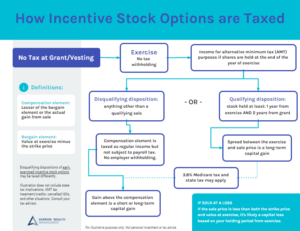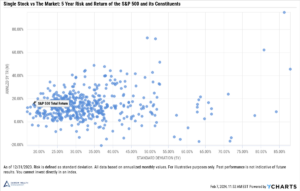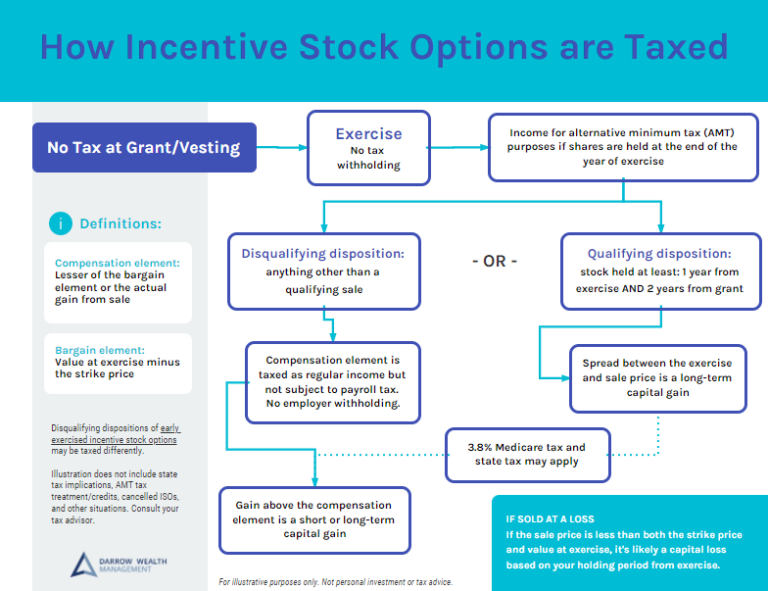Figuring Out What To Do With A Windfall
Whether sudden or expected, a financial windfall can come in many different forms. Perhaps an inheritance, selling a business, stock options, distributions from a trust, or even winning the lottery. How to best use the proceeds from a windfall depends on a number of factors unique to your situation and the type of lump sum you received. Broadly, you have options for the proceeds: save it, spend it, invest it. In many situations, the best approach will be some combination of the three.
Take an inventory of your goals and current financial situation
To determine what to do with a windfall, first consider where you want to be financially and how you were previously tracking towards those goals. For example, perhaps you’re saving for college or building wealth to provide more flexibility in life, like an early retirement. In many situations, it make sense to allocate the proceeds across multiple goals.
Depending on the magnitude of the windfall, you may be contemplating goals that weren’t even on the horizon before. After identifying and prioritizing your goals, work with your financial and tax advisor to understand the type of windfall you have and the tax implications or opportunities.
Tax implications depend on the type of windfall
Inheritance
If you’ve received an inheritance of a taxable asset (such as a home or investment account) you may qualify for a special tax benefit called a ‘step-up’ in basis. This is when the cost basis of an asset for tax purposes increases to the fair market value at the date of death. In another words: if you sold the asset right away, you may be able to do so with no taxable gain, regardless of how much the asset appreciated.
Basis is complicated though, assets owned jointly may only be entitled to a half step-up and state laws vary. Generally, inherited assets are only eligible for a step-up in basis if they pass through the decedent’s estate.
Inheriting a retirement account (like an IRA or 401(k)) will have unique rules too, including when you can—or must—take the funds. Distribution requirements and options will depend on many factors such as your relationship to the decedent, ages, and whether the asset was inherited outright or through a trust with other beneficiaries.
Equity compensation and stock options
Other windfalls
Other types of windfalls will have unique tax planning opportunities too. For example, life insurance proceeds aren’t typically taxable to the individual but can be to the estate. The sale of a business can be structured in so many ways, it’s an entirely separate topic. Ultimately, you’ll need to make sure you understand your options as it related to your unique situation.
Speak with an Advisor About Managing Sudden Wealth
Stress testing your plan
Depending on your financial goals, you may need to be prepared to make some trade offs if the liquidity event isn’t enough to cover it all. Determining what’s ‘enough’ can be tricky—that’s where a Monte Carlo analysis comes in.
In financial planning, one of the uses of a Monte Carlo simulation is to test the viability of cash needs. A Monte Carlo analysis runs hundreds—or even thousands—of simulations using a range of market returns (given your investment mix) to determine the probability your portfolio will survive all withdrawals. Put another way: it’s a stress test to help ensure you won’t run out of money. The higher the probability, the more likely the outcome. The results of the analysis can be very powerful.
Online financial calculators assume a static return every year (perhaps 5% for example). But with a Monte Carlo, the simulation could account for the fact that the average may be 5%, but the returns were 7%, -5%, and 13%. Depending on whether you’re contributing or taking money out, the sequence risk can have a big impact on your bottom line.
Final thoughts on windfall money management
After receiving a windfall, try not to rush into making any decisions. Consider working with an advisor to help you think it though. Using the money only on lifestyle improvements could put you at a disadvantage financially. Paying off debt may not be in your best interest either. Depending on the type of debt, interest rate, amount, etc. You can only spend a dollar once, so consider the pros and cons of your options using a long-term lens.
Learn more about Sudden Wealth Management
This article was written by Darrow Advisor Kristin McKenna, CFP® and originally published by Forbes.











